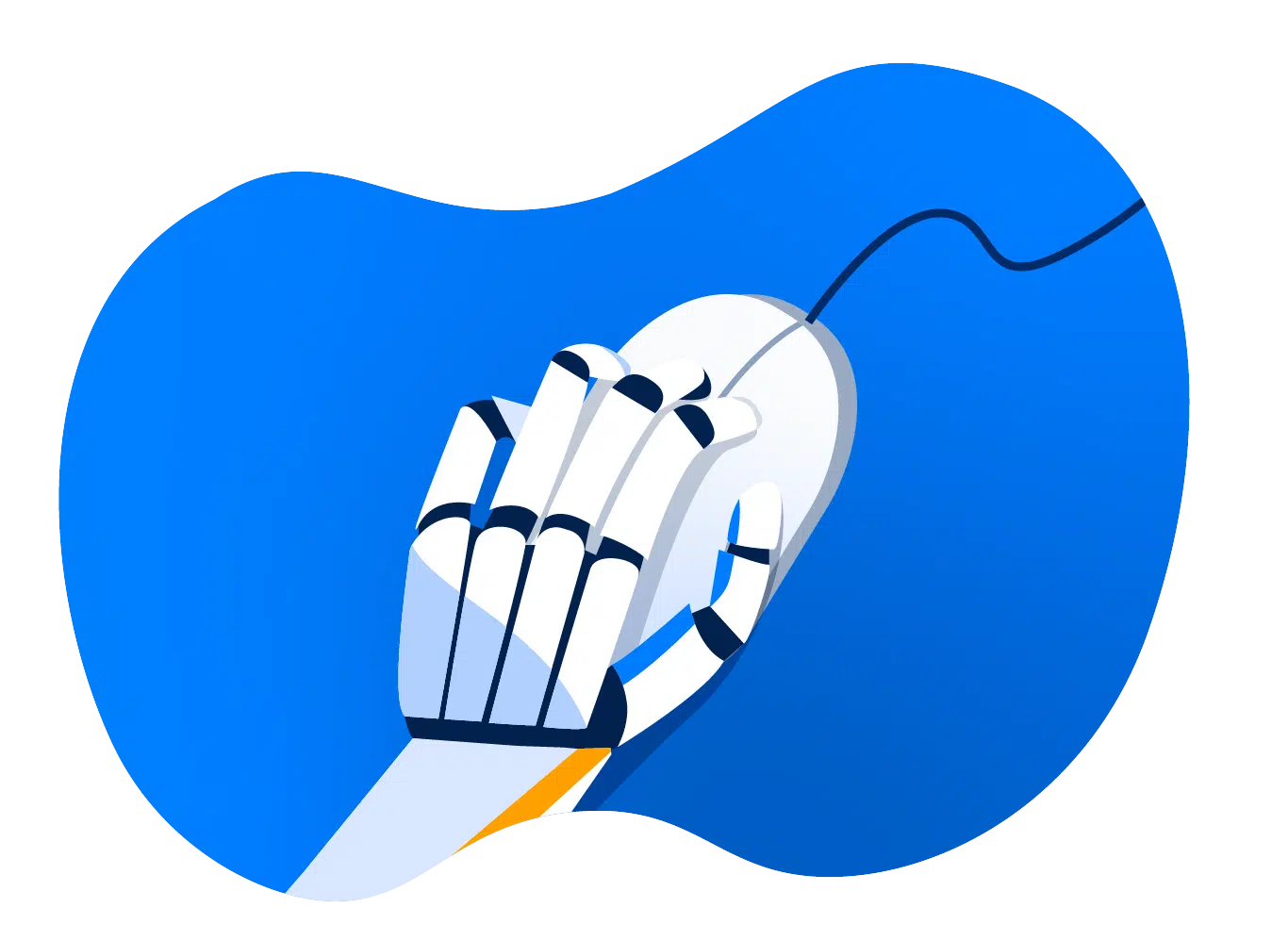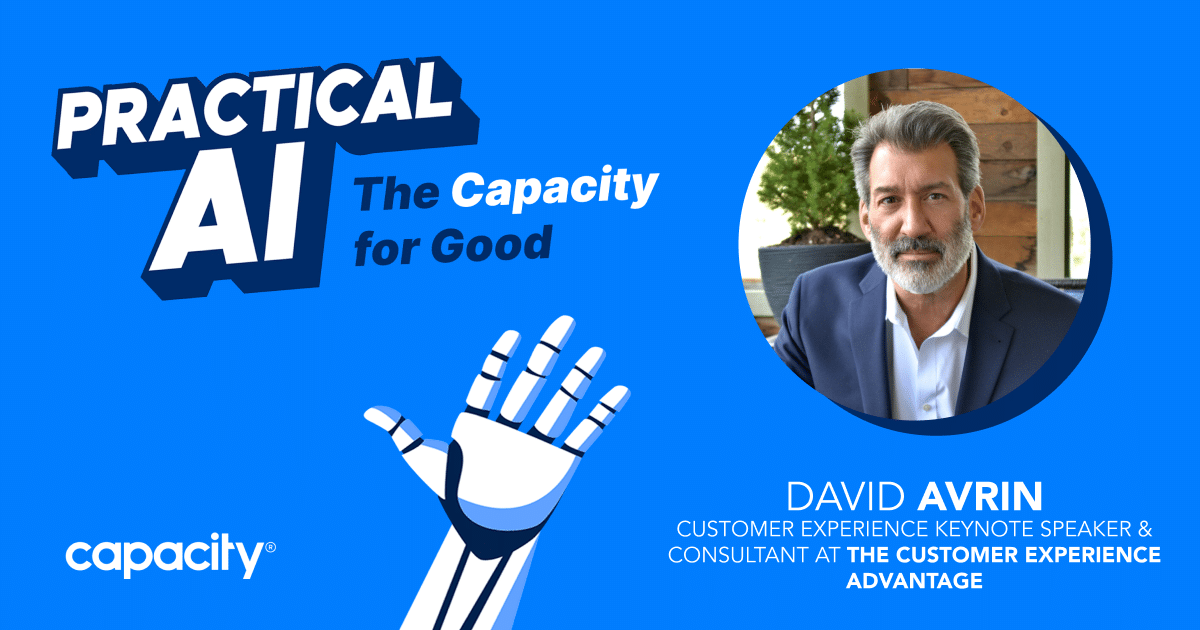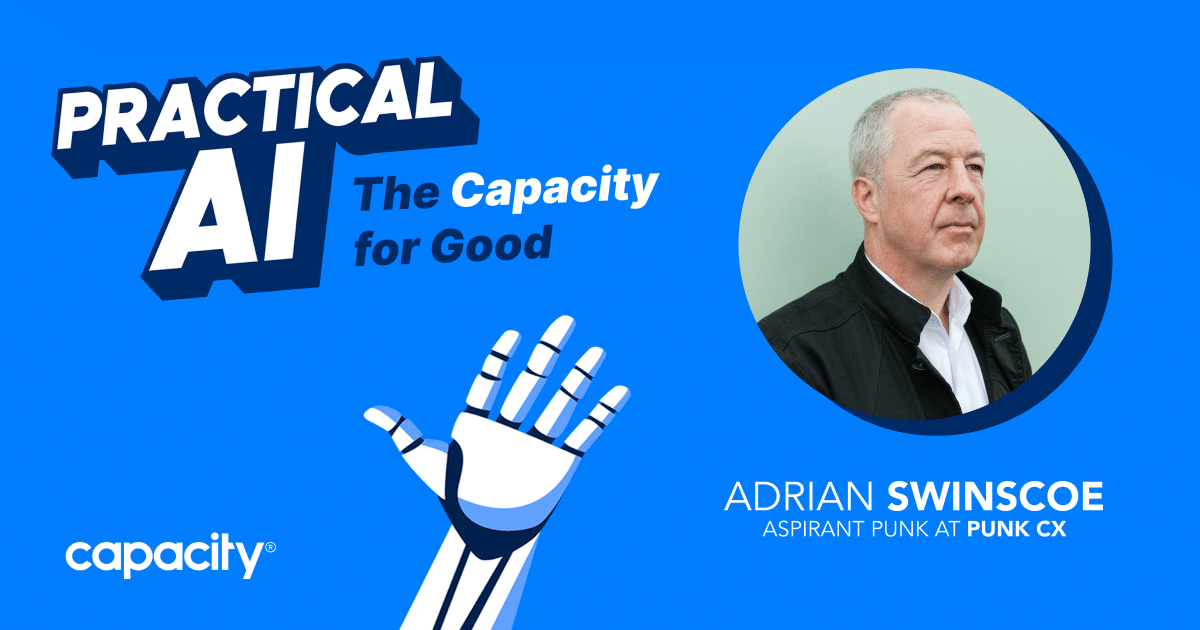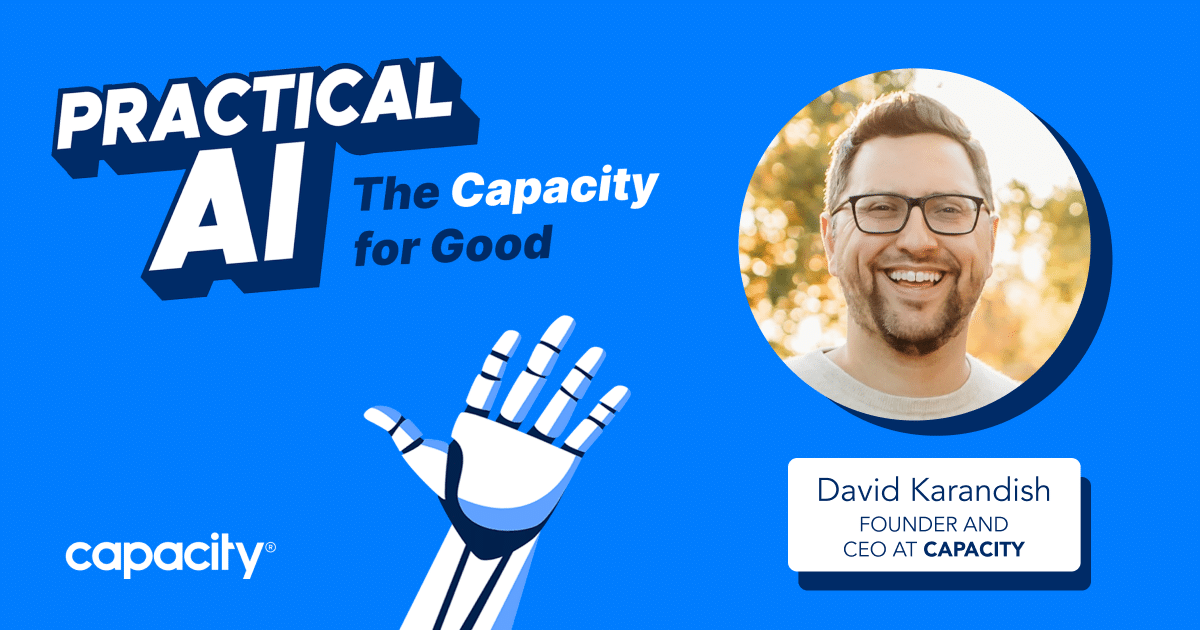What is HR Automation?
HR automation eliminates repetitive tasks and workflows in Human Resource departments. When automation is successfully applied to HR, the team can focus on strategic, relationship, and people-centric work.
How Automation Affects HR
HR automation is already impacting forward-thinking organizations. When Human Resource teams eliminate repetitive tasks, they can shift that focus to people. The best HR automation solutions reduce errors and give employees access to typically hard-to-find information. HR automation also helps securely deliver resources, including 401k info, company policies, important documents, and more.

Automate Your Work
Capacity’s enterprise AI chatbot can help:
- Answer FAQs anytime, anywhere
- Find relevant documents within seconds
- Give surveys and collect feedback
Top 4 Benefits of Automating HR Processes
Automating HR tasks can help reduce errors, increase employee happiness, improve collaboration across teams, and simplify onboarding practices.
Fewer Errors
HR Automation technology is all about streamlining processes and increasing consistency. When repetitive or tedious tasks are automated, fewer errors occur, which is integral to Human Resource departments.
A shocking 91% of employees believe that frustration and stress adversely affect their work quality. And, more pressure usually equals more errors. HR automation can relieve teams from this “frustrating” work, so they can spend more time focusing on projects that require strategic, human thinking.

Happier Employees
When employees are bogged down with repetitive tasks and mundane processes, frustrations can reach a fever pitch. A study from USC reports that almost 75% of all HR tasks consist of time-consuming, tedious work. HR automation technology can eliminate nearly all repetitive processes that take time away from HR teams.
When HR teams commit to automation, they can shift their focus to people operations, including internal communications programs, employee wellness, and retention. When employees no longer have to search through thousands of documents and databases trying to find one piece of information, their experience is significantly improved. While automation in HR might seem counterintuitive, eliminating rote tasks for HR teams creates more time and space to increase employee happiness.
Better Communication
HR Automation can also revolutionize how teams communicate and collaborate. Instead of sending a team member an email asking for a document, automation allows teams to set up automated workflows that instantly send an email without ever having to enter a keystroke.
Automating HR tasks also reduces the number of interruptions. When teams don’t have to task-switch to locate documents, communication improves, and frustrations decrease.
Improved Recruitment & Onboarding
The sheer volume of essential steps during onboarding can add up fast. HR automation tools help speed up historically slow processes.
Now more than ever, faster processes mean better quality candidates and lower turnover. In a recent study by G2, 80% of HR employees found that using automated HR technologies improved employee attitudes toward the company. Job seekers are 3.5 times more likely to apply to a company when notified of their application status.

The Most Common Challenges of HR Process Automation
Managing several, if not hundreds, of individual employee data sets, ensuring their accuracy, and accurately updating each piece of information is a heavy lift and a substantial challenge for any team. Since HR automation deals with complex workflows and processes, challenges can appear during implementation, including:
- Switching to a new solution – Updating outdated practices takes time. Getting buy-in is tough.
- Too many vendors – You’ve seen the memes. Multiple platforms lead to confusion.
- Binders, Binders, Binders – Many HR departments are slow to adopt new tech because of their familiarity with decades-old processes.
3 Steps to Automate Your HR Processes
Starting your HR automation journey can be daunting. But, like most things in life, breaking the process down into smaller steps is key.
Create a Wishlist
Human resource teams have many tasks to complete during work, like sending emails, scheduling meetings, and creating onboarding plans. Take time to document your team’s weekly, monthly, and quarterly tasks and workflows. This activity will provide the framework for deciding what to automate and what needs personalized attention. When analyzing HR tasks, think about these questions:
- What processes take the most time out of my day?
- What are the most common employee questions answered by HR?
- What tasks require the most interruption and task-switching?
Think about every task that belongs to a project and note where your frustrations are. Decide what you would like to automate and shortlist those that will significantly impact your team.
Get the Team on the Automation Train
There are many great reasons why a team decides to implement HR Automation technology. But this information is only sometimes relayed to team members.
When encouraging the adoption of technology and attempting to change the mindset of team members, it’s necessary to be clear about why HR automation will improve the day-to-day work of the team and the organization. Leading with benefits will excite and increase interest among the group.
Consistent communication across teams can help everyone see the positive impact HR automation can have company-wide.

Implement an HR Automation Platform
Start with a platform that automates HR tasks and workflows. There are several vital features the best HR automation platforms have, including:
- A robust knowledge base
- Custom app integrations
- An Interactive helpdesk
- Automated workflows
- An AI-powered chatbot
Automating HR processes through an all-in-one AI-powered platform can significantly improve employee and customer experiences. Only 17% of organizations use AI-based solutions for HR tasks. Of these forward-thinking orgs, HR leaders cite cost savings, more accurate data-based decision-making, and improved employee experience as the top reasons to implement automation for HR.
6 HR Automation Examples and Ideas
Human Resources is at the heart of every organization. It’s crucial to treat HR teams as such and provide the best possible solutions. Given all of HR’s tasks and workflows, there are hundreds of different ways to utilize HR automation.
Here are the top six ways your team can use HR automation:
Automatically send welcome emails to new employees
Sending introductory emails to new employees can get chaotic, especially when juggling multiple new hires. Send personalized emails on your behalf automatically with an HR Automation platform.
Automatically Track and Request PTO
Monitoring and managing PTO can be an HR nightmare. HR automation can help. Through app integrations like Slack or Microsoft Teams, employees can easily request PTO through a conversational AI-powered chatbot. Approval is instantly sent to their manager, and once approved or denied, the employee is notified.

Automatically Keep Employee Information Current
Managing employee data can get messy. Through HR automation, employee information can be organized and easily accessible. Instantly update employee records, tax info, and benefit details, and have immediate access to data 24/7/365.
Automate Training During Onboarding
Onboarding new employees includes many steps, like sharing company values, systems, and position-specific training. By automating training processes for new employees, HR teams can save both time and money, while new employees get access to job-specific training materials instantly.
Automate Answers to FAQs
New and current employees ask all sorts of questions that get directed toward HR teams, such as “Who is _____’s manager?” or “What is the building door code?”
A robust knowledge base full of common questions and answers can save everyone in your organization valuable time. Through a support automation platform, information from the knowledge base can be pulled and delivered to employees who need answers asap. An AI-powered chatbot can answer FAQs within seconds for employees.
Automate Employee Feedback
Continuous improvement is crucial for any business looking to retain and gain new employees. HR automation is a great way to manage employee feedback and opinions. Automatically send a survey to your org, and analyze the results as they come in.
3 Best HR Automation Software
Automating your time-consuming HR tasks can be a heavy lift. You’ll need the best HR automation software to help your org implement this new technology.

Here are three HR automation tools that will help your business succeed:
Capacity
Capacity is a platform designed to help HR teams automate support for employees and customers. Employees get immediate tier 0 and 1 support with various HR tasks like new employee onboarding curriculum or sending company-wide emails. Capacity deflects over 90% of the most frequently asked questions from employees.

With an HR automation platform, forms and paperwork will be a thing of the past. Grow employee productivity and empower team members with instant access 24/7/365 to important information.
1Password
1Password is a password manager that provides a central place for users to store different passwords, log-in data, and other proprietary information in a virtual vault. Securely store all the passwords and licenses that your business needs..
Paylocity
Paylocity is a cloud-based payroll and human capital management software. Paylocity can help HR teams organize company and employee information from org charts to benefit management to extensive reporting.





